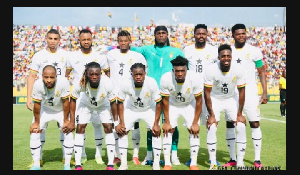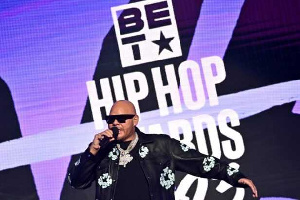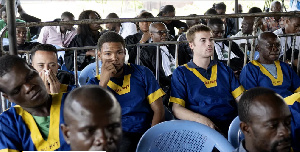Regional News of Saturday, 4 July 2015
Source: GNA
Forum on Catholic Development Agencies opens
The Second Country Forum on Catholic Development Agencies opened on Thursday in Accra, with a call on the Church to prioritise its development goals to facilitate the achievement of the Sustainable Development Goals (SDGs).
The two-day forum is on the theme: “Responding to challenges and opportunities of the Post 2015 development Agenda- Role of Catholic Development Organisations."
It is being organised by Misereor, MAREDES, Catholic Relief Agencies, Caritas Africa, and the Catholic Bishops Conference.
In attendance are 20 Diocesan Development offices of the Ghana Catholic Bishops Conference, Catholic development partners from Germany, England and USA, Caritas Member-Organisations from Tanzania, Kenya, Nigeria and Sierra Leone as well as representatives of the symposium of Episcopal Conference of Africa and Madagasgar.
The forum is aimed at increasing awareness and participation of Catholic Development Agencies in the on-going processes towards agreeing on a new global development agenda to succeed and millennium development goals, which is currently referred to as the sustainable development goals.
It is also meant to create a platform for government to provide update on their participation in the post 2015 development agenda negotiations, and how this will likely influence our own national development planning.
Participants will deliberate and agree on preliminary priority areas of the sustainable development goals and develop a work plan for our engagement towards their implementation and monitoring of success in Ghana in a more structured and coordinated manner.
Rev Fr Evaristus Bassey, National Director of Caritas, Nigeria, who made the call in a keynote address said there were 17 goals and about 169 targets, adding that even though the zero darft document of the post-2015 summit says: “day present day challenges are inter-releated and call for integrated solutions, as eradicating poverty and inequality, preserving the planet and creating inclusive economic growth are linked to each other and inter-related, yet as a church we need to prioritise.'
He said there may be some goals which may properly fit more with developed countries than less advanced countries noting that concerted action would bring about an integrated solution.
For the Church too, it would help identify which goals fit well with her mission in the various countries, especially with focus on people, planet and prosperity, and bearing in mind the available resources.
He also called for policy co-ordination in the institutions established by the Church, and urged her to be more transparent in the processes, systems and structures.
In a speech read for him, Nii Moi Thompson, Director-General of the National Development Planning, recalled that the UN Conference on Environment and Development (UNCED) held in Rio de Janeiro, Brazil in 1992, set up a global developmental agenda for the 21st century, called the Rio Declaration or Agenda 21.
He said a global development agenda known as the Millennium Development Goals (MDGs) was set up to achieve a number of global targets by 2015.
The Rio+20 outcome document, The future we want, inter alia, called for the establishment of an Open Working Group (OWG) to develop a set of post-2015 global development agenda called Sustainable Development Goals (SDGs) for consideration and appropriate action by the United Nations General Assembly at its 68th session.
The document also provided the basis for the conceptualization of the Sustainable Development Goals (SDGs), which were to be integrated into the UN Post-2015 Development Agenda.
The OWG, has among other things, re-affirmed all the principles of the Rio Declaration on environment and development, including, inter alia, the principle of common but differentiated responsibilities.
He explained that the SDGs are being matched to the current policy objectives and strategies in the Ghana Shared Growth Development Agenda (GSGDA) II 2014-2017, as an initial process of mainstreaming the post-2015 development agenda into our development planning process.
This process will be rolled over into Ghana’s long-term development for 2016-2056 which is currently being developed, adding that the existing cross-sectoral planning group which discuss various themes of the Ghana shared growth and development to ensure consistency, would be strengthened to include other stakeholders apart from government, he added.
He said accessible, reliable and robust data for planning, and for monitoring and evaluation. This will be done in collaboration with relevant government and non-government organizations, and the involvement of the citizenry










